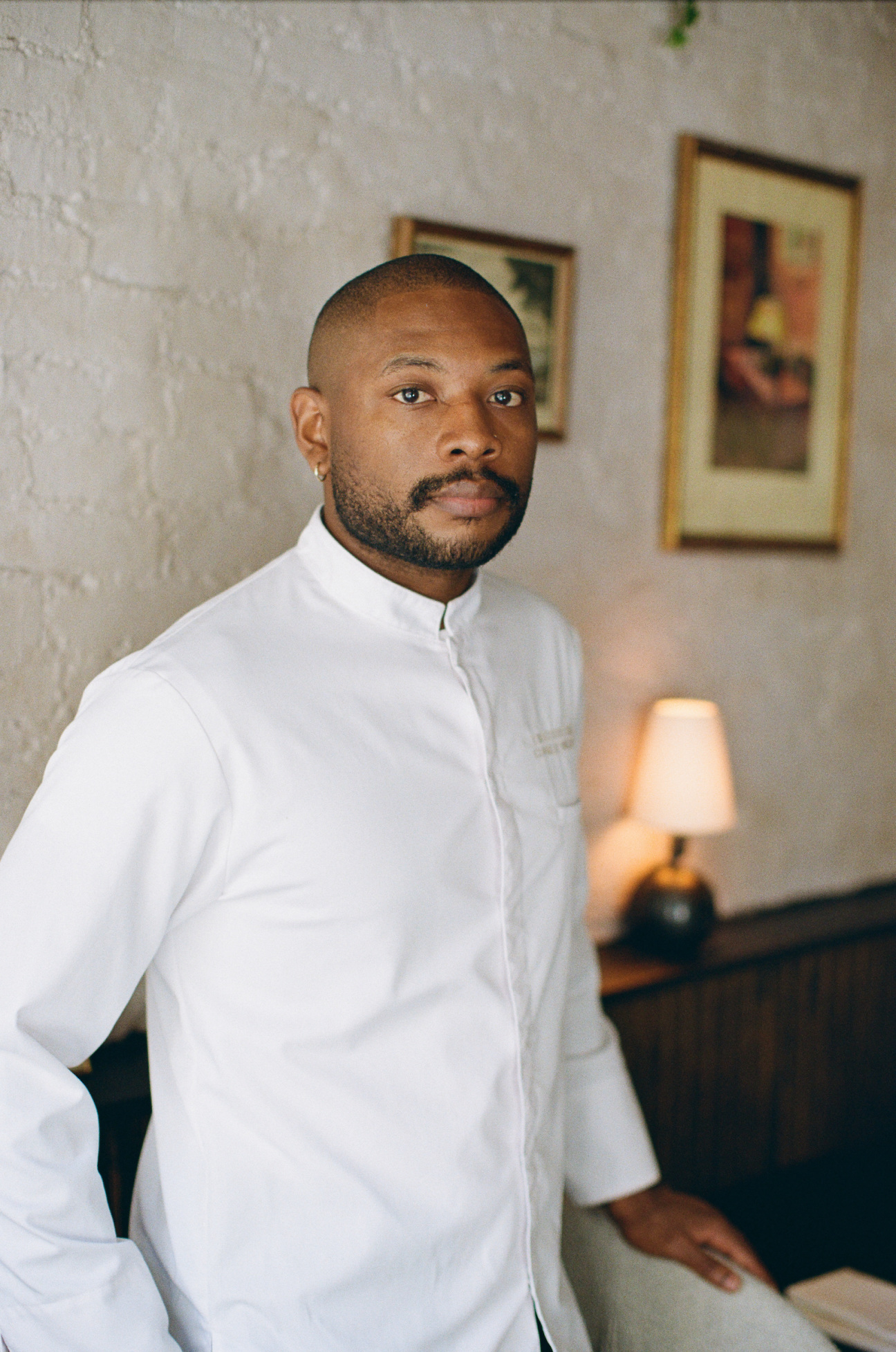
A little over a year ago, Charlie Mitchell made headlines as the first Black chef to receive a Michelin star in New York (and only the second in the country). Clover Hill, the Brooklyn Heights restaurant Mitchell ushered into the spotlight, had only just reopened in February 2022 when founder Clay Castillo gave the Detroit native his first executive chef position. The spot’s ingredient-driven, eight-course prix fixe menu caught the culinary Oscars’ attention, and the rest is history.
Since then, Mitchell—a Villanelle and Eleven Madison Park alum—has been focused on making the intimate joint the least pretentious, and highest value, fine dining experience you’ll find in the city. To mark the end of a momentous year for the chef, CULTURED called up Mitchell to talk about tough kitchens, over-achieving for a better price, and carving out space for a new generation of restaurants.
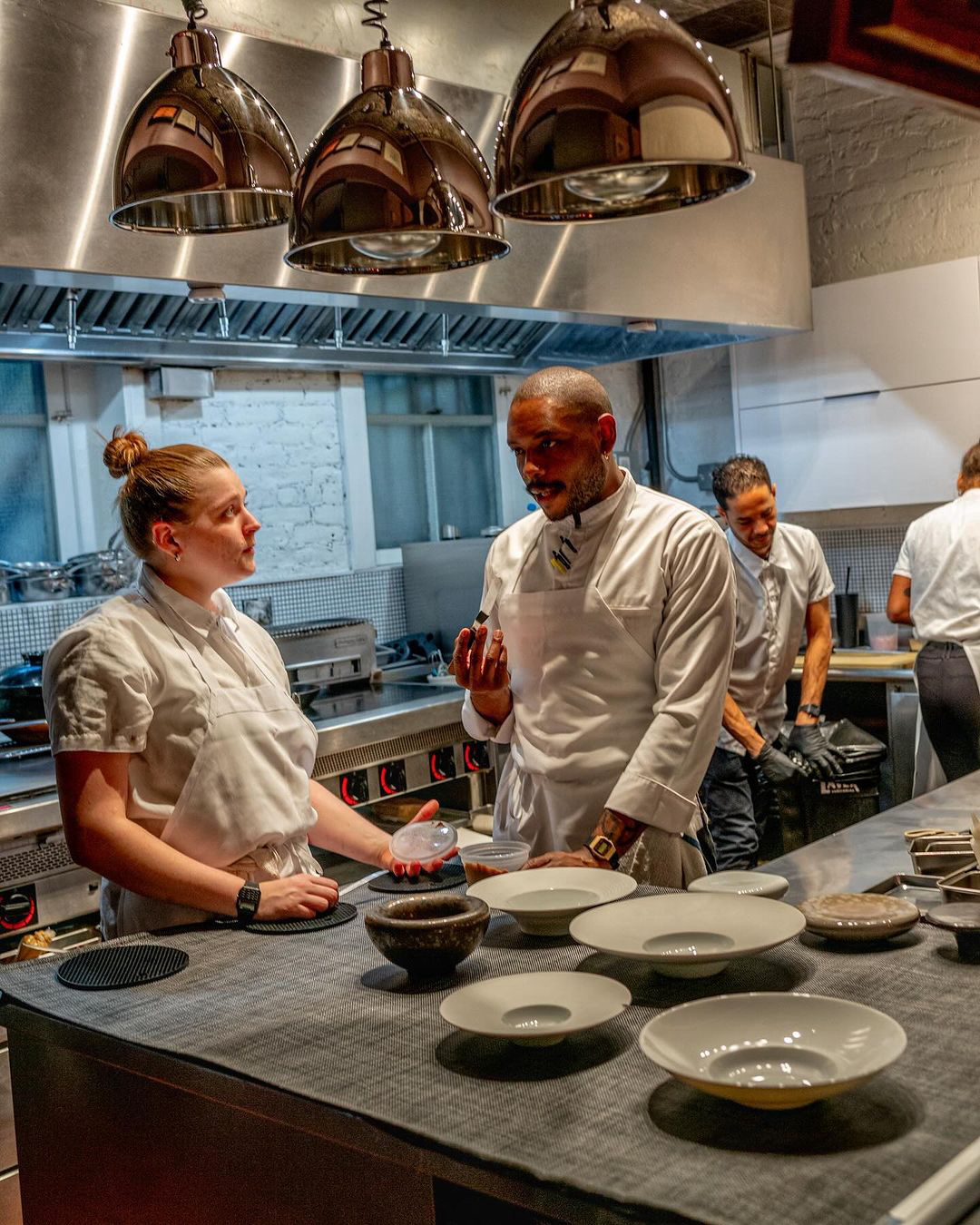
Where are you, and what's in your system?
Coffee and two Asian pears.
I know you grew up in Detroit, but can you tell me a little bit about the food ecosystem you grew up around?
Growing up, we mainly ate at home. It was all about how my friends and family and small circle fellowshipped around food. Both of my grandmothers were raised in the South. My parents were born in Michigan, but most of the food we ate growing up was Southern inspired.
Do you remember being interested in food early on?
I spent a lot of time with my grandmother, so from a very young age I wanted to learn how to cook, learn how she made certain things. It didn't become something that I thought could possibly be a profession until maybe high school. That's when I was like, “Oh, actually I'm doing this on my own now. This is something that I actually really enjoy doing.”
Where did you think being a chef could take you? What excited you about the career?
At that time, being from Detroit, I didn't know much about it. In high school, I didn't know shit about Michelin stars or James Beard Awards or the World’s 50 Best; the most I knew at that time was Food Network. Initially, I was just focused on [the fact that] I didn't really like school. I wanted to do something I enjoyed. But I had no idea actually what opportunities it would create for me until later on.
You worked in some more casual restaurants in Detroit before moving to New York in 2016. What was it like to arrive in New York?
It was a shock. I wanted to work in the toughest kitchen, and I wanted to do fine dining. I didn't necessarily realize how big of a learning curve it was gonna be. It humbled me in a lot of ways. It really made me understand that in order for me to be a good chef, I had to actually be good and practice and dedicate a lot of time mentally and physically to learn the craft. It taught me how to be disciplined, it taught me how to have goals and know what I'm working towards.
In your early years in New York, you worked at renowned spots like Eleven Madison Park. What drew you to the world of fine dining specifically?
I was enamored. I was introduced to fine dining and these culinary legends, and I really want[ed] to be like those guys. These chefs that do fine dining, they get to be creative, they get to serve what they wanna serve, they get to have a different voice. I felt like it was the only way to express myself at that time. I just thought it was cool—the skill set and how challenging it was. That really got me on the path of fine dining and that's still why I do it now.
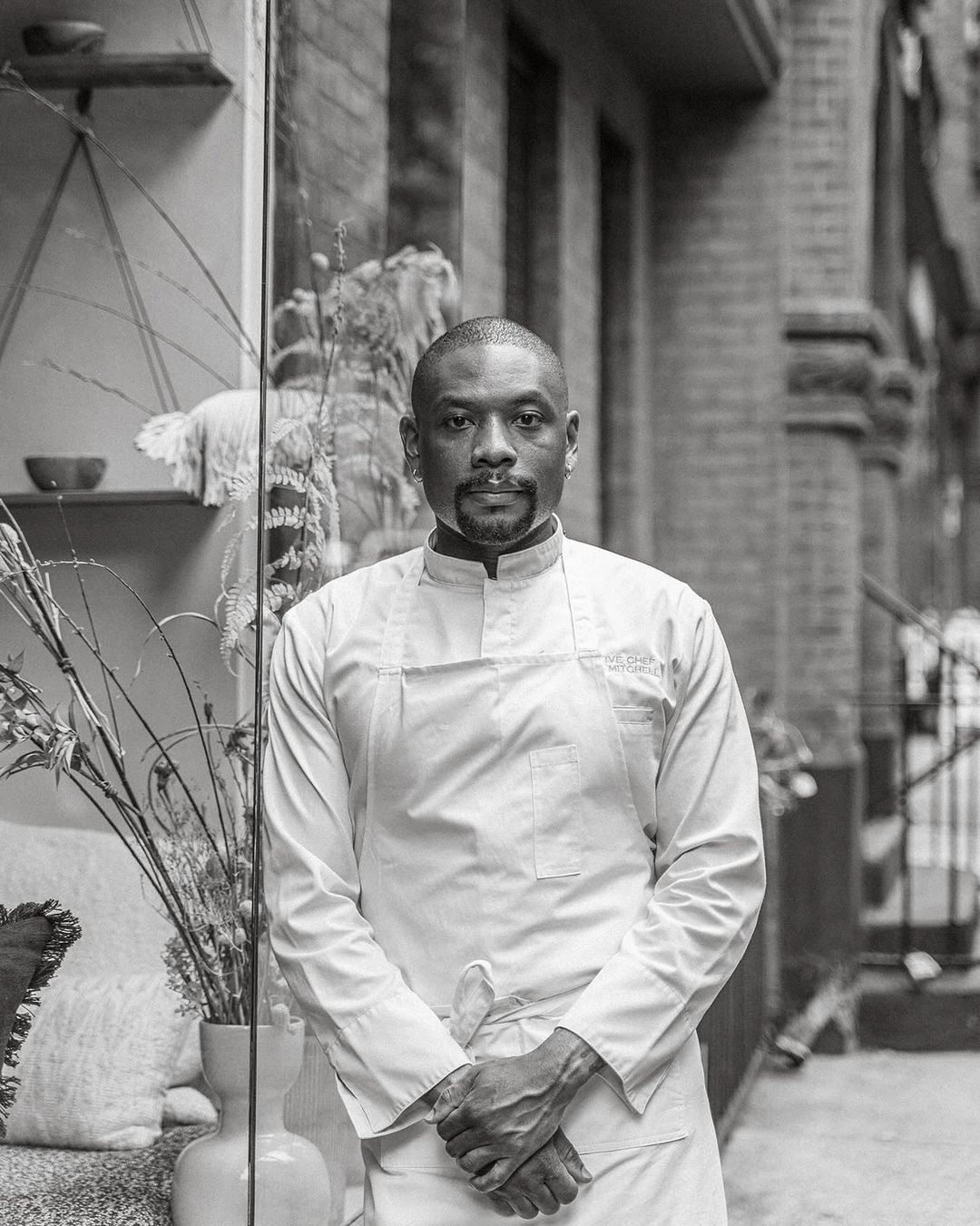
What did you know you wanted to bring to Clover Hill when it reopened with you as a chef in 2022?
I had no idea, to be transparent. This is my first executive chef job and I wasn't looking for an executive chef job. The stars just aligned. I met with Clay, and he wanted to reopen the restaurant. We knew we wanted to make a special place, and we just decided to go for it. For me, from a culinary standpoint, it was like, “Let's really figure out what people want, how I wanna make people feel.”
What I thought was the most important along the way was good, honest cooking, ingredients treated very well, and having value in the meal. We're an expensive restaurant, and I still believe it is one of the best values in the city as far as the level of ingredients, how much food you get, the level of cookery that you have here. That was very important to me, that the meal felt like we over-achieved for a better price.
In the kitchen and the culture, we wanted to create a place where we challenged the idea of what fine dining environments were. I'm a Black chef, Clay is Venezuelan; we’re two people of color running a fine dining restaurant in Brooklyn, and we wanted to do it in a way that didn't have to feel pretentious.
Clover Hill has really been prized as this model for a more equitable kitchen, even internally in terms of how toxic kitchen dynamics can be. What have been the challenges of instituting that? Do you feel like that's a sustainable model in the long term?
Building any culture from the ground up is challenging. The most challenging part is, how do you develop a standard and how do you develop consistency? It really challenges your communication skills. Ultimately, whether it's in this kitchen or in a really aggressive kitchen, at the end of the day, something you have to learn is that this is just not for everybody. You can scream out a cook and they can still mess up, or you could talk to them respectfully and they still mess up. I had to learn that some people need special attention. Some people don't.
But either way this shit is hard. It's also just a very emotional place. Any time you pack six humans in a room together for fucking 12 to 14 hours and they're all working hard and they're all passionate… It's unrealistic for people to expect chefs to never get emotional about their craft or passion.
What do you wanna see more and less of in the New York restaurant world?
As the new kid in the restaurant world here, I like seeing the industry get younger. I feel like the city has great chefs who have 10 or 20 restaurants, and they kind of dominate the market. It's time for some younger chefs to get some real creative opportunities and mix things up a little bit. I do feel there's a bit of youthfulness that's missing sometimes in the restaurant scene right now.
Switching gears to a few rapid-fire questions, if you had to pick between breakfast, lunch, and dinner, which would you pick?
Dinner always. I like cooking dinner because that's the last meal of the day. It brings the day together.
What's an underrated ingredient and an overrated ingredient right now?
Root vegetables are underrated, especially rutabaga, and bitter turnips are some of my favorite things to cook with. Overrated? Truffles all day.
What's your go-to bodega order?
I've been off the sauce for a while but it used to always be a chicken cutlet on a hero.
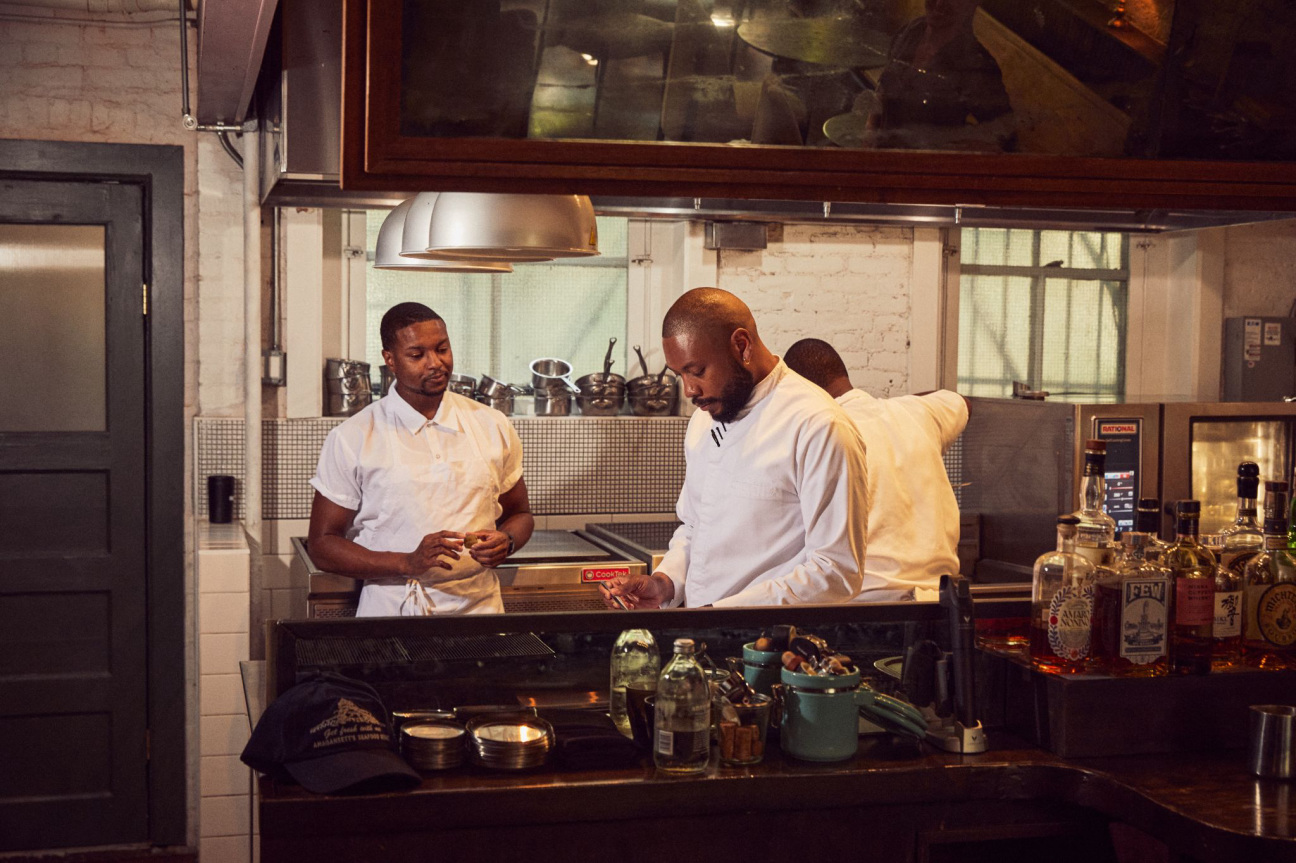
What’s a kitchen utensil you can’t live without?
My box cutter.
If you're hosting a dinner party, who do your first three invites go to?
I never throw dinner parties.
You've never thrown a dinner party?
Never. I'm a chef. I'm always cooking. I'm always at work.
For more tips and opinionated takes from food experts, see our interviews with Molly Baz, Sohla El-Waylly, and Yewande Komolafe.

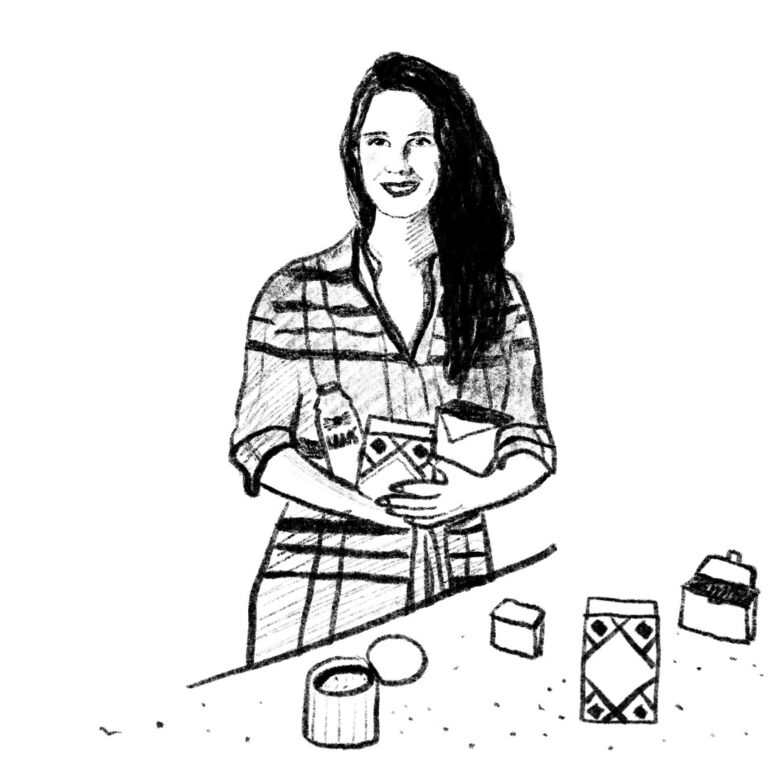
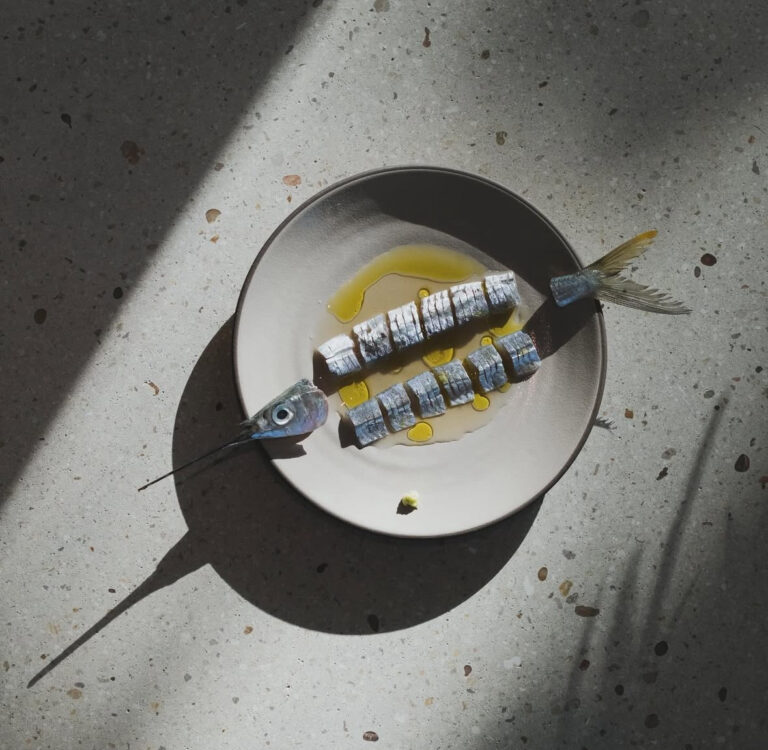
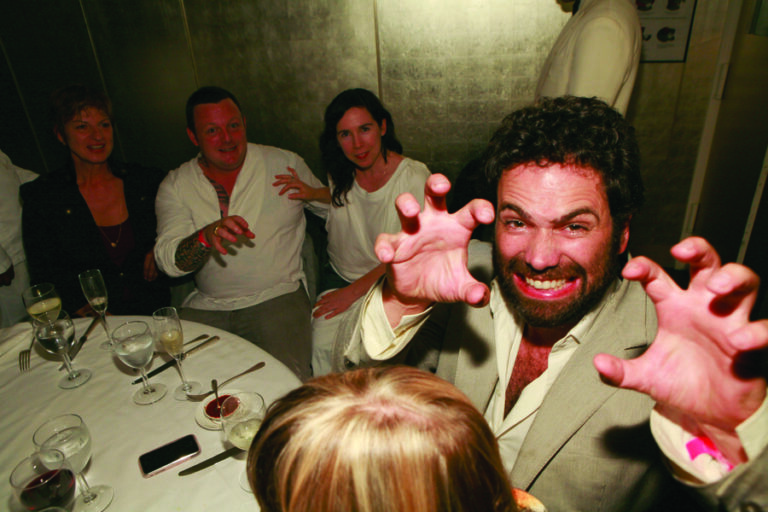
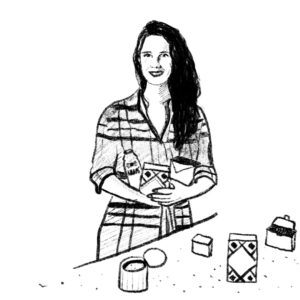
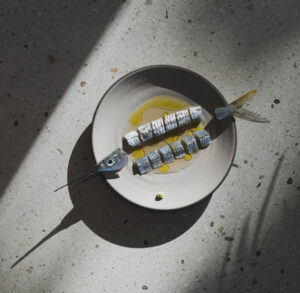
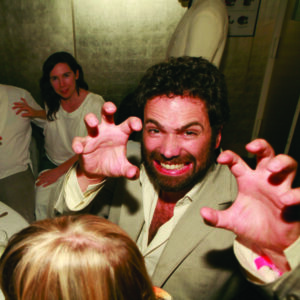



 in your life?
in your life?

